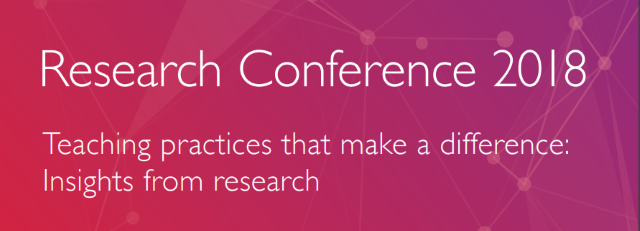
Sunday 12 August 2018
Event Title
Early literacy skills: Finding the right pathway for each child
Start Date
12-8-2018 4:15 PM
End Date
12-8-2018 5:15 PM
Subjects
Literacy education, Lower primary years, Early reading, Online tests
Abstract
The first two years of schooling are often regarded as ‘make or break’ for students to develop competent literacy skills that can last into adulthood. These are skills that also often define students’ overall learning experiences for the rest of their time at school. Implementing a consistent, whole-school practice of applying reading assessment data to inform pedagogy during the first two years of education can significantly contribute to the ongoing improvement of students’ literacy and their school experience. This paper introduces a simple and efficient model for educators in the early years to facilitate this practice in two keys areas of early reading – decoding and comprehension. Drawing on case studies from schools using the ACER PAT Early Years online assessment suite, various conclusions and methods are reviewed and presented for consideration. Although educators from schools using PAT assessments will find the information highly applicable, the model can be effectively implemented at any school and the outcomes are relevant to all early childhood educators.
Recommended Citation
Anzai, D. (2018, August 12). Early literacy skills: Finding the right pathway for each child [Paper presentation]. Research Conference 2018 - Teaching practices that make a difference: Insights from research. https://research.acer.edu.au/research_conference/RC2018/12august/6
Copyright Statement
Copyright Australian Council for Educational Research 2018
Place of Publication
Melbourne, Australia
Publisher
Australian Council for Educational Research (ACER)
ISBN
9781742865119
Early literacy skills: Finding the right pathway for each child
The first two years of schooling are often regarded as ‘make or break’ for students to develop competent literacy skills that can last into adulthood. These are skills that also often define students’ overall learning experiences for the rest of their time at school. Implementing a consistent, whole-school practice of applying reading assessment data to inform pedagogy during the first two years of education can significantly contribute to the ongoing improvement of students’ literacy and their school experience. This paper introduces a simple and efficient model for educators in the early years to facilitate this practice in two keys areas of early reading – decoding and comprehension. Drawing on case studies from schools using the ACER PAT Early Years online assessment suite, various conclusions and methods are reviewed and presented for consideration. Although educators from schools using PAT assessments will find the information highly applicable, the model can be effectively implemented at any school and the outcomes are relevant to all early childhood educators.


Comments
Session 1D